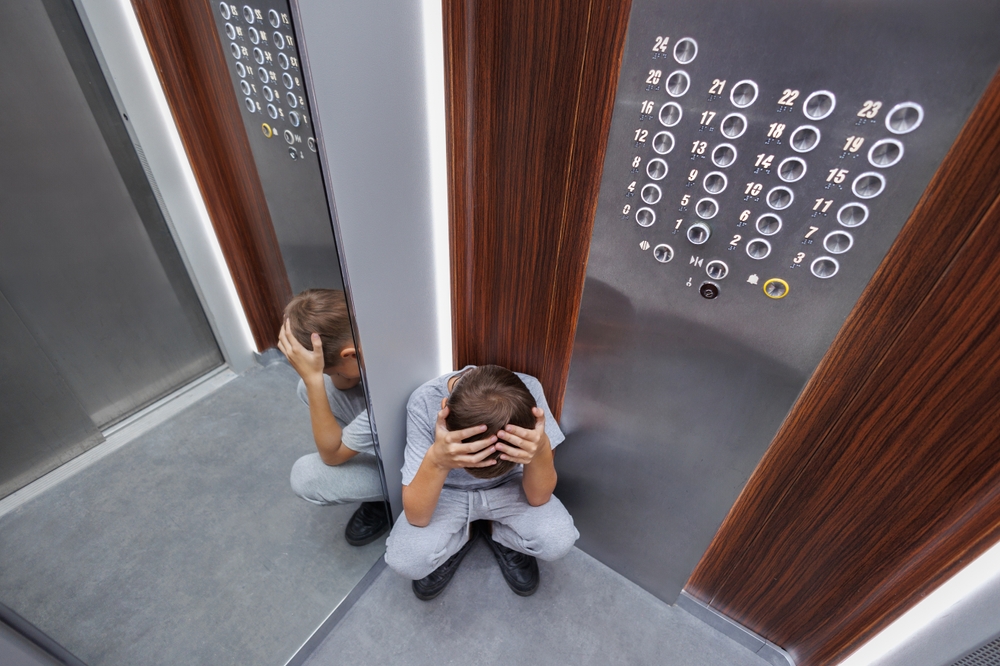From sudden stops to misaligned floors, an elevator malfunction can lead to serious injuries for anyone who relies on it. At Abrams Justice Trial Attorneys, we focus on representing individuals who have been harmed by malfunctioning elevators, holding negligent property owners and maintenance companies accountable for personal injuries and related losses.
Why Elevator Accidents in Residential Buildings Matter
Elevator accidents can have devastating consequences. An elevator is a piece of machinery that carries multiple passengers at once, often spanning dozens of floors at high speeds. Any small defect in its cables, gears, electrical systems, or doors can cause sudden stops, drops, or other scenarios that pose immediate risks to anyone on board.
Elevator accidents also often involve complex liability because multiple parties may be involved in the design, manufacturing, installation, inspection, or maintenance of the elevator. The building owner might be one responsible party, while the elevator manufacturer, contractor, or inspector could also be liable. Sorting out who exactly knew or should have known about the problem typically requires an in-depth investigation.
Furthermore, the injuries that can occur in an elevator accident tend to be serious: back injuries, broken bones, traumatic brain injuries, or severe psychological trauma—especially if a victim was trapped for a prolonged period. These long-lasting impacts can rack up medical bills, cause loss of income, and result in significant pain and suffering.
What Is Considered as a Broken Elevator?
Elevators run on complex mechanical and electrical systems, so several types of malfunctions can occur. Below are some of the most frequent issues:
- Mechanical Failures – High-tension cables and counterweights allow the elevator to move safely. Any defect or wear-and-tear in these components can lead to catastrophic drops or uneven movement. Elevators also rely on smoothly functioning gears and pulleys. When these parts aren’t well maintained or become misaligned, it can cause sudden stops or jerky movements that injure passengers.
- Door Malfunctions – Many elevator doors operate with sensors that detect a person’s presence. If the sensors fail, doors may shut prematurely, causing crush injuries or trapping clothing. In rare but alarming cases, an elevator car might stop between floors, and the doors open when they shouldn’t, exposing passengers to dangerous gaps or precipitating falls.
- Electrical Problems – If an elevator loses power unexpectedly, passengers could be stuck between floors. Sudden restarts can also create jolting movements. More so, elevator logic boards control speed, door function, and floor alignment. A glitch or short in these boards can cause erratic behavior.
- Emergency Brake Failures – Elevators have braking systems designed to engage if the cabin exceeds a certain speed. If these fail, the elevator could continue to plummet, risking severe injury or even death.
- Poor Maintenance – Some maintenance crews might use cheaper, lower-grade replacement parts that can fail sooner, jeopardizing passenger safety.
- Misalignment of Floors – Even a slight misalignment can create a lip or drop that causes unsuspecting passengers to trip and fall when entering or exiting the elevator car.
All these scenarios present substantial physical and emotional risks. Victims of elevator accidents might face not only immediate physical harm but also long-term health complications and emotional trauma. Such injuries can dramatically affect a person’s quality of life, ability to work, and financial stability.
Your Rights and Liability in Elevator Accidents in Florida
One of the most challenging aspects of elevator injury cases is determining liability. Unlike a simple two-car fender bender, an elevator often involves multiple entities that could be at fault. These may include:
- Property Owners or Managers – Typically responsible for ensuring all mechanical systems on the premises, including elevators, are regularly inspected and maintained.
- Maintenance Contractors – External companies hired to repair and maintain the elevator. If they performed subpar work or skipped necessary repairs, they could be held liable.
- Manufacturers – If an elevator—or one of its components—was defectively designed or manufactured, the maker could be legally responsible for injuries resulting from the defect.
- Installers or Inspectors – An elevator might have been incorrectly installed or improperly inspected, causing hidden hazards that only manifest over time.
Under Florida law, you have the right to a safe and habitable living environment, which includes reasonably safe and functioning elevators in multi-story buildings. To establish liability, the injured party (plaintiff) generally must show:
- Duty of Care – The defendant (owner, manufacturer, or maintenance crew) owed a duty of care to keep the elevator safe.
- Breach of Duty – The defendant failed to meet that duty by ignoring a known issue, skipping inspections, or improperly manufacturing a component.
- Causation – The breach of duty directly caused the plaintiff’s injuries.
- Damages – The plaintiff suffered actual harm, whether physical, financial, or both.
Individuals can work with an elevator malfunction attorney in Miami to enforce their rights under Florida law.
The Role of Building Codes, Inspections, and Maintenance
Elevator operation in Florida is subject to stringent state and local regulations, as well as industry standards set by organizations such as the American Society of Mechanical Engineers (ASME). These regulations govern everything from how often an elevator should be inspected to what types of emergency features it must include. For instance:
- Routine Inspections – Building codes often require regular inspections by certified inspectors. During these inspections, professionals look for mechanical wear, electrical issues, and overall compliance with safety standards.
- Preventive Maintenance – Maintenance contracts typically stipulate scheduled check-ups, lubrications, and part replacements.
- Modern Safety Features – Many modern elevators include advanced sensors, intercoms, and emergency braking systems. If a building owner fails to upgrade or properly maintain these features, they may be held responsible for resulting injuries.
When inspections and repairs are done correctly, the risk of elevator accidents drops significantly. On the other hand, failing to comply with these codes or using unqualified technicians greatly increases the chance of malfunction. If an investigation reveals that the property owner or a maintenance company did not follow legally required inspection protocols, this could serve as strong evidence of negligence in a personal injury case.
Types of Injuries in Elevator Accidents
Elevator-related injuries can range from mild to life-altering. Among the most common are:
- Soft Tissue Injuries – Bruises, sprains, and strains often occur if passengers are knocked off balance by a sudden stop or jolt.
- Fractures and Broken Bones – A more severe jolt or a slip-and-fall caused by misaligned doors can result in broken arms, legs, ribs, or hips.
- Spinal Cord Injuries – Forceful impacts, such as a rapid drop, can compress or damage the spine, sometimes leading to partial or full paralysis.
- Head and Traumatic Brain Injuries (TBIs) – If a victim’s head hits the wall or floor, they can suffer concussions, brain contusions, or worse.
- Internal Injuries – Internal bleeding or organ damage could occur from strong impacts, especially in malfunction scenarios like unexpected drops.
- Psychological Trauma – Being trapped in an elevator for hours or experiencing a near-free fall can lead to long-lasting anxiety, post-traumatic stress disorder (PTSD), or claustrophobia.
These injuries often lead to extensive medical bills, ongoing rehabilitation, and potentially permanent disability. While some individuals recover fully, others may struggle with the lingering effects for the rest of their lives.
Potential Damages in Broken Elevator Accident Cases
If you sustain injuries in an elevator malfunction accident, you may be entitled to compensation, also known as “damages,” for the losses you have incurred. These damages typically fall into a few categories:
Economic Damages
These damages are intended to compensate for quantifiable financial losses resulting from an incident. This includes medical bills, which cover a wide range of expenses such as immediate emergency care, surgeries, hospital stays, prescription medications, physical therapy, and any anticipated future medical costs related to the injuries.
Lost wages are also included, providing reimbursement for current and future lost income if the injuries forced time off work or prevented a return to a previous occupation. Finally, economic damages encompass property damage, allowing for the recovery of repair or replacement costs for any personal belongings, such as laptops, phones, or other valuables, that were damaged in the incident.
Non-Economic Damages
These damages address the intangible losses that are more difficult to assign a specific monetary value. Pain and suffering aims to compensate for the physical pain and emotional anguish experienced as a result of the injuries. Emotional distress covers the psychological impact of the incident, which may include the need for psychological counseling and treatment for conditions like anxiety or PTSD. In certain cases, loss of consortium may be claimed by family members if the injuries have negatively impacted their relationships with the injured person, such as a loss of companionship, support, or intimacy.
Punitive Damages
In Florida, punitive damages are awarded under specific circumstances and serve a different purpose than economic and non-economic damages. They are only awarded if the defendant’s actions are deemed grossly negligent or particularly egregious, demonstrating a conscious disregard for the safety of others. These damages are not intended to compensate the plaintiff for losses but rather to punish the wrongdoer for their egregious conduct and deter similar behavior in the future.
Contact Abrams Justice Trial Attorneys to evaluate your case and determine the best course of action. Our skilled Miami elevator accident attorney can help you file claims and recover damages for financial and personal losses.
Choose Abrams Justice Trial Attorneys Today
Broken elevators can disrupt your life, compromise your safety, and violate your rights. Whether you’re dealing with injuries, accessibility issues, or unresponsive landlords, you don’t have to face these challenges alone. Abrams Justice Trial Attorneys is here to fight for justice and help you reclaim your peace of mind. Don’t wait to act—contact us today and let our team of experienced Miami elevator accident attorneys guide you toward a resolution.


